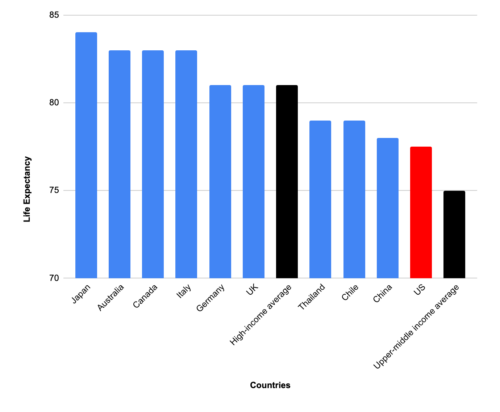Managing Austerity’s Axe
By: / 09.02.2011
 In the wake of Hurricane Irene, there has been consternation over whether the GOP proposed cuts to the United States Geological Survey signifies that they were actively endangering the public. Political scoreboard aside, while it is true that America as a nation could survive without quality weather surveillance, not needing a program does not automatically justify severe budget cuts.
In the wake of Hurricane Irene, there has been consternation over whether the GOP proposed cuts to the United States Geological Survey signifies that they were actively endangering the public. Political scoreboard aside, while it is true that America as a nation could survive without quality weather surveillance, not needing a program does not automatically justify severe budget cuts.
Imagine America as a frigate. Our ship might be weighed down by our blossoming debt, but that does not mean we should be indiscriminately throwing our guns overboard in an attempt to lighten our load. Furthermore our focus on the crisis of the moment is also distracting us from one of the lessons of Hurricane Irene: the need to defend valuable government programs that cannot defend themselves. The national discussion needs to be reoriented from its current state to one about reducing the deficit in a way that does not prioritize politically expedient cuts over the budgets of beneficial government programs lacking political clout.
The smallest instance of this concept is a recent Washington Post cause célèbre – defending the Statistical Abstract of the United States. Called “America’s databook” by Post Columnist Robert Samuleson and defended by other Post Columnists E.J Dionne and Ezra Klein, the abstract provides a single destination for various sorts of facts that one normally would have to spend hours trolling through government databases to discover. While not essential to existence of the United States, the abstract provides useful information and would be in a sense akin to losing data from the Bureau of Labor Statistics, making our country worse off by making us less knowledgeable. For $2.9 million – pocket change to the federal government, the abstract is an unnecessary sacrifice in a blanket effort to reduce the budget.
To think about it another way, in pure job creation terms, government spending on the abstract creates 24 jobs at $120,000 per job – less than the $200,000 per job cost Felix Salmon finds for infrastructure spending.
Another more tangible example of this debate is a $784 million cut to Federal Emergency Management Agency (FEMA) emergency response grants. These grants fund first responders, paying for the training of local and state emergency personnel. The training prepares them to manage current crises like Vermont floods. Before immediately writing FEMA off as wasteful spending, it’s important to note the steps FEMA has taken to redeem its sullied reputation. FEMA received positive reviews from both sides of the aisle in its response to Hurricane Irene.
Yet due to a slimmed budget, FEMA disaster relief money is running out, pitting two disasters against each other for catastrophe aid. With funding not yet appropriated to help the Joplin, Missouri recovery efforts, Missouri Senators are already warning about diverting funding from rebuilding Joplin to recovering from Irene.
“Recovery from hurricane damage on the East Coast must not come at the expense of Missouri’s rebuilding efforts,” Senator Roy Blunt (R-Mo.) said Monday in a statement.
Competition should not exist between states for disaster relief. Not only is it immoral to declare one disaster more worthy of funding than another, but it also represents a basic betrayal of citizens who depend on the government for at least their very security.
Conservative economist, Doug Holtz-Eakin has a two-part test for creating government programs, “Does the economy fail to deliver something? And second, could the government do it better?” As Samuelson notes, there is no private market equivalent of the Statistical Abstract and I seriously doubt that a private corperation could provide disaster relief better than FEMA can. There is no denying that deficit reduction needs to occur, but legislators should think twice about government’s basic responsibilities before subjecting agencies without political clout to austerity’s axe.
Photo Credit: U.S Coast Guard






